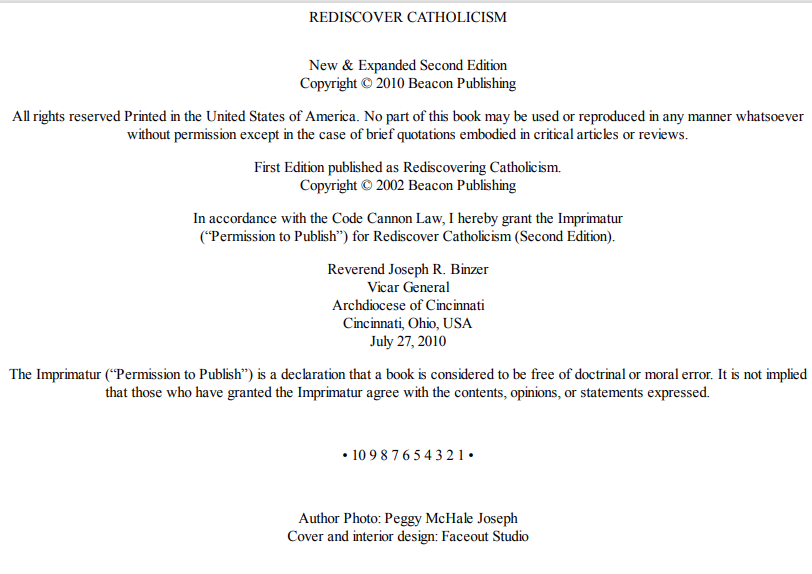Recently, I came across a book published in 2012 which indicates an "Imprimatur" (i.e., permission to print) from Reverend Joseph R. Binzer, Auxiliary Archbishop, Archdiocese of Cincinnati. It contains, however, no Nihil Obstat (which indicates that the book is not objectionable on doctrinal or moral grounds).
I don't recall having ever seen a book published with an Imprimatur but no Nihil Obstat.
An example from another of his book:

QUESTION: Should I have reason to suspect that the Imprimatur is not valid? I ask this, because:
How can an archdiocese mandate "let it be printed" without having first assigned it to a qualified censor to determine if there is anything contained therein objectionable to the Catholic Faith?
Can an auxiliary bishop grant an Imprimatur? I thought that the granting of a valid Imprimatur comes is the prerogative of the local ordinary alone---which in this case would be the archbishop of Cincinnati---provided of course, that either the real author resides in Cincinnati or the book was published in Cincinnati? Incidentally, the book indicates a publisher based in Erlanger, KY, which is within the diocese of Covington, KY---and not Cincinnati.
QUESTION 2: The author indicated on the book is a young (< 50 years old) Australian who operates several companies and publishes many, many books (with his name on it)---some of which have been marketed to both Catholics and Protestants under "different" publishing companies. If a ghostwriter is involved, how does Canon Law account for that? I interpret the author as being the one who actually writes the book, not necessarily the one who's name appears on the book.
